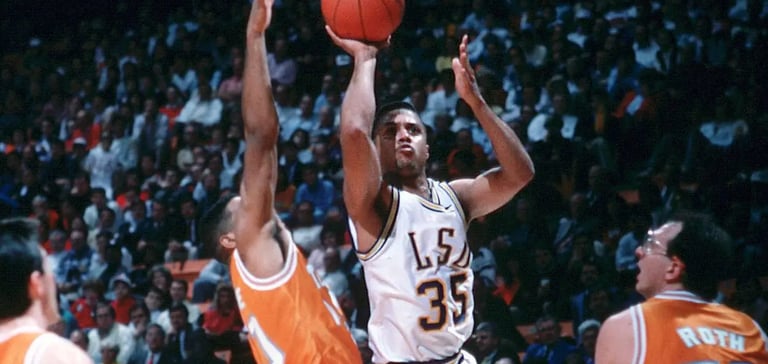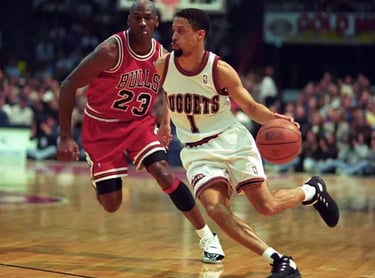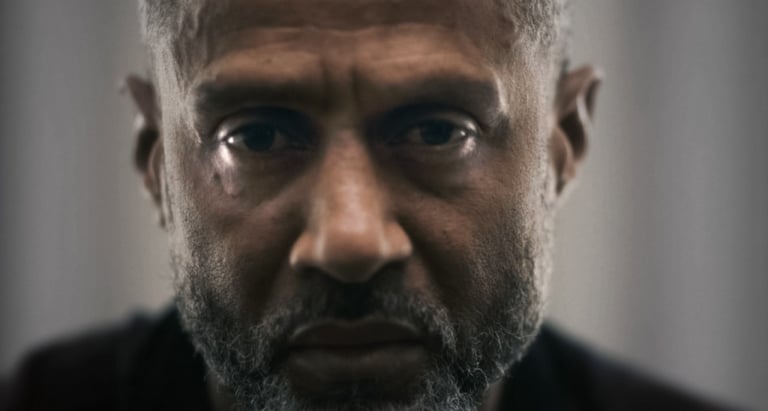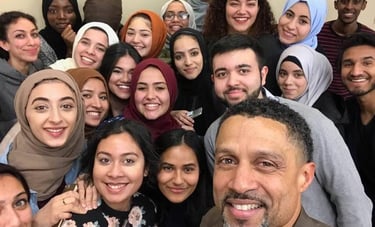Mahmoud Abdul-Rauf: A Forgotten NBA Hero
Nabil Fathi
4/3/20255 min read
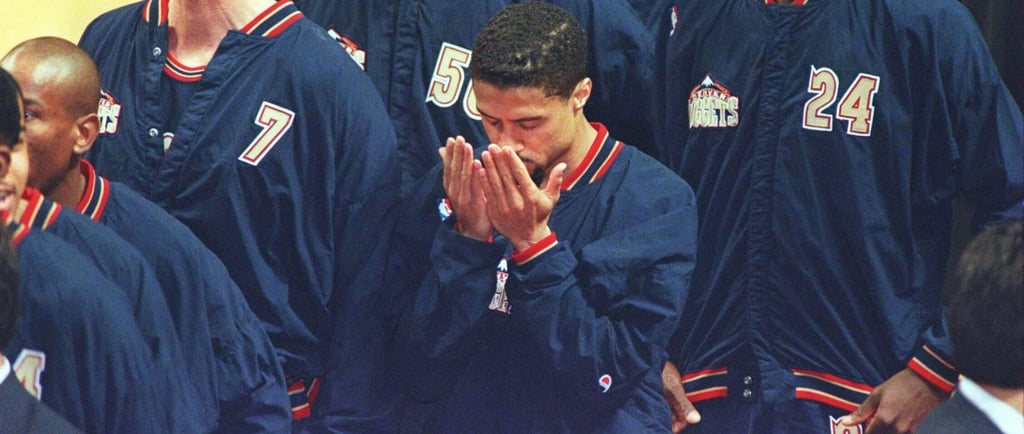

Mahmoud Abdul-Rauf's promising debut
Mahmoud Abdul-Rauf, formerly known as Chris Jackson, was born in Baton Rouge, Louisiana, where he spent a childhood marked by socio-economic challenges. From a young age, he showed an undeniable talent for basketball. His performance in the field in high school was remarkable, attracting the attention of university recruiters who recognized his ability to score points in an impressive way. His determination and commitment propelled him to recognition in American basketball.
In 1990, Abdul-Rauf decided to continue his career with the LSU Tigers college team, where he continued to shine. His rookie season was exceptional, marked by an average of 30.2 points per game, which earned him the title of NCAA's top scorer. His agility, speed and sharp shooting made him a player to watch. His ability to shoot from a distance revolutionized his game, making it difficult for opposing teams to defend. These complementary skills have allowed him to rise to the status of a rising star in the basketball landscape.
It was also during this period that he decided to change his name from Chris Jackson to Mahmoud Abdul-Rauf, after embracing Islam, which had a significant impact on his professional and personal life. His faith played an essential role in his motivation and rigor, influencing his approach to the game and his career that would follow. Abdul-Rauf's journey within LSU not only highlighted his talents as a player, but was also a crucial step in his development as an individual, combining sport, faith and resilience. This unique mix helped him build a successful career, preparing him to enter the coveted NBA.
A Revolutionary Talent in the Field
Mahmoud Abdul-Rauf is often recognized for his spectacular style of play that anticipates the modern evolution of basketball. His shooting technique, marked by formidable precision, has irreparably changed the perception of the role of a playmaker in the NBA. At a time when players favored penetrations and midfield shots, Abdul-Rauf introduced a game based on the effectiveness of outside shots. His ability to shoot accurately, even under pressure, is strongly reminiscent of Stephen Curry's style of play, a comparison that seems relevant, as the two players showed that distance did not limit their offensive power.
During his time with the Denver Nuggets, Abdul-Rauf was able to establish himself as a key player, with a speed that allowed him to sneak between the defenders and create shooting opportunities. His agility and dribbling skills were also remarkable; he could manipulate the game with a fluidity that caught the attention of fans and the media. His performances on the field, including scoring 51 points against the Utah Jazz in 1996, marked the minds and underlined his potential as a revolutionary player. This match, in particular, demonstrated his ability to lead his team and perform at an exceptional level, even in the face of strong adversity.
Abdul-Rauf not only impressed with his individual performances, he also paved the way for many young players, who started their careers with a style of play inspired by his innovative techniques. His impact on the field remains undeniable and deserves to be recognized in light of the evolution of the modern game, where three-point shooting and speed of execution have become crucial. This iconic player remains a forgotten hero, but his legacy continues to live through today's players.
Humanism and Commitment: Mahmoud's Fight
Mahmoud Abdul-Rauf is an iconic figure whose career illustrates the power of personal commitment and humanism. Diagnosed with Tourette syndrome, Abdul-Rauf has faced countless challenges throughout his career, but he has always been able to transform his struggles into a source of inspiration. By sharing his experience, he not only raised public awareness of this neurological condition, but also encouraged a better understanding and acceptance of individuals living with similar disorders.
Beyond his successes in the field, Abdul-Rauf is also recognized for his ardent commitment to education and social justice. It has led initiatives to help disadvantaged youth, providing them with resources and learning opportunities. This passion for education is reflected in his efforts to raise awareness of social issues, highlighting the obstacles faced by many communities. His commitment is not limited to speeches, but translates into concrete actions that support his convictions.
One of the most striking decisions of his career was to remain seated during the American national anthem, an act that sparked considerable controversy. With this gesture, he wanted to express his disagreement with racial injustice and persistent inequalities in society. This action, although controversial, testifies to his courage and his resolution to defend his convictions in the face of immense social and media pressure. By choosing to prioritize his principles over conformity, Abdul-Rauf embodies a true example of personal integrity, a forgotten hero who deserves to be recognized for his courage and humanism.
The Legacy of Mahmoud Abdul-Rauf
Mahmoud Abdul-Rauf, although often omitted from traditional basketball stories, has left an indelible legacy that transcends sport. His influence is palpable not only on the field, but also within the basketball culture and in the social consciousness of the players. As a gifted player, he has redefined what it means to be a committed athlete, using his platform to raise issues of social justice and equality.
His career, marked by challenges and struggles, illustrates resilience and courage. By opposing perceived injustices, Abdul-Rauf has become a symbol of resistance and dignity. His decision to kneel during the national anthem to protest the oppression of African Americans in the United States not only sparked debate, but also paved the way for other athletes to express their views on socio-political issues. In doing so, he has undoubtedly inspired generations of players who, today, continue to take a position on similar themes.
The late recognition of his contributions is also an essential aspect of his legacy. Although long ignored by most media and fans, his career is now appreciated, and he receives praise from new generations of supporters. Basketball figures, both ancient and contemporary, often evoke his name with respect, highlighting his exceptional talent and impact on the game. This offers a valuable opportunity not only to celebrate his career, but also to recall the importance of remembering such heroes who have defied the norms and enriched the history of the sport. Mahmoud Abdul-Rauf's legacy, as a player and activist, therefore remains an essential element to be preserved in the history of basketball.

